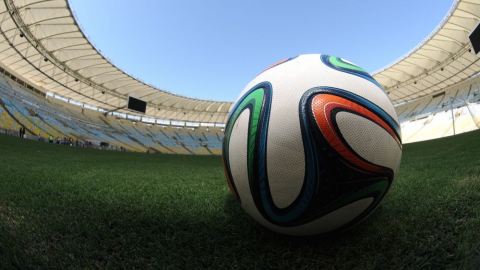After FIFA Messes with U.S. World Cup Bid, FBI Hits Back

As Americans, we only care about soccer so much. But we do care about hosting the world’s most popular sporting tournament — a lot.
There is little doubt that laws against corruption and bribery have been violated by the international soccer organization FIFA. One of professional sports’ worst kept secrets is that FIFA executives regularly accepted cash in exchange for television and merchandizing rights to international soccer matches.
The Justice Department’s own legal briefs, unsealed after the FBI arrested several FIFA officials yesterday in Switzerland’s high-end resort Baur au Lac, document a 24-year history of shady financial dealings amounting to $150 million.
It was when FIFA awarded the 2022 World Cup to Qatar — a country that could reach 120 degrees Fahrenheit during match play — red flags went up in the American legal system. Of course, the US was also competing to host the World Cup in 2022, and Bill Clinton personally campaigned on America’s behalf.
There was some symbolic justice when the FBI moved against FIFA members at the Baur au Lac, the same hotel where Bill Clinton allegedly smashed a mirror after losing the 2022 bid to Qatar. It seems that donating money to the Clinton Foundation was not apology enough for FIFA or the Qatar hosting committee.
Beyond sports fandom, lives are often at stake where World Cup games are hosted. The British newspaper The Guardian, for example, estimates that nearly 1,000 workers died in Qatar between 2012 and 2013 while constructing soccer stadiums for the games. This obviously would not have happened in the United States.
ABC news reports that bribes were also made on behalf of venues in the United States, not for the World Cup, but for the Copa América, which determines South America’s soccer champion.
Allocating finite legal resources to enforce laws is always a difficult matter, but when it comes to getting pushed around, the US won’t have it, and that’s probably a good thing. If only other countries, particularly in Europe where football fandom rules, would stand up for their fans in a similar way.





